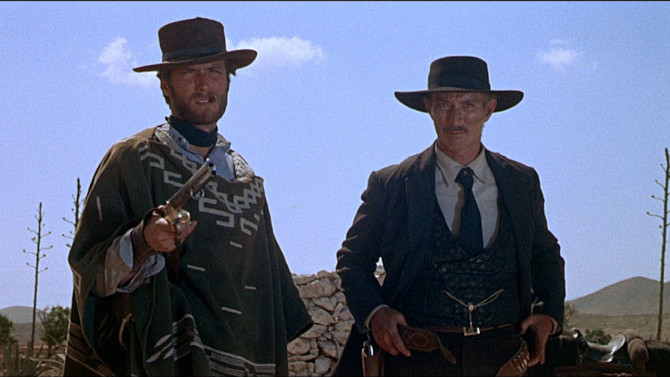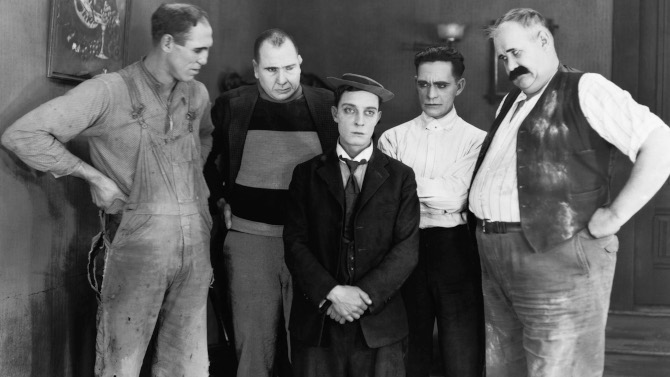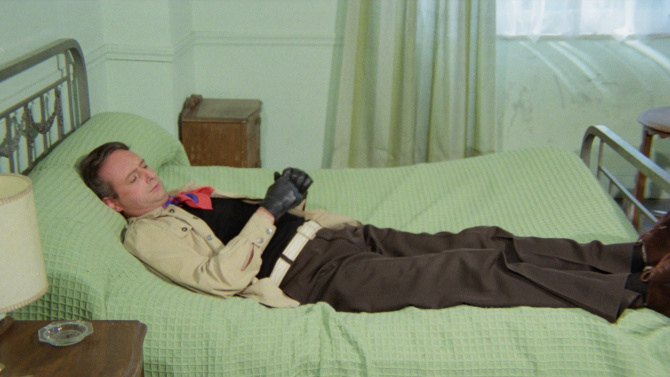
An Impossible Mission
How do you wrap up a franchise like Mission: Impossible? That is, if this even is the final installment... as they’ve made it sound (while at the same time, stars not named ‘Tom Cruise’ pipe up and suggest that might not be so). It has been twenty-nine years, with different writers and visionary directors – from twisty Brian De Palma and the action hair stylings of John Woo, to the lens flares of J.J. Abrams and animation expert Brad Bird, it was only about ten years ago that the franchise decided to opt for The Usual Suspects scribe Christopher McQuarrie for the final four. To return to that opening question once more, you could end with a Sopranos’ style cliffhanger, simply make another entertaining movie like the many before – like Everybody Loves Raymond did it with its final episode, or try to tie everything up in a neat little bow by bringing everything together as the Daniel Craig era did with James Bond. Well, it is definitely more along the lines of the latter example, with some distinct differences.
-

Leader of the Pack
Generation WolfJuly 18, 2020As I sat watching the special screening of the Canadian independent film Generation Wolf (the Ontario non-festival premiere held at the historic Port Theatre in Cornwall) surrounded by a massive audience – an image triggered in my mind. . . that of two individuals playing Russian roulette. Though this may seem nonsensical (especially once you read my synopsis), please allow me to elaborate. The movie had a certain inevitability, much like the deathly contest – after all, Russian roulette always ends with a bullet to the head. Yet, it was also imbued with many other features associated with the contest – chance, luck, suspense and a certain unpredictability. It is perhaps the biggest risk/reward game that can be played. As you can imagine, Generation Wolf produces its fair share of nerving thrills. Christian de la Cortina co-writes (along with Frank Baylis), produces, directs and stars in this Canadian picture that is still surfing the festival circuit. He plays Vincent Del Toro, a smart young man who has left his home in Michigan for sunny days in California, and is on the verge of putting his business on the map. Converting classic cars of yesteryear into modern, electric cars of the future, he has already made some sales. Waiting on the licensing bureau, he soon realizes that they are actually re-possessing his cars – as they won’t accept the electric motors he has used.
-

Bounty Hunters
For a Few Dollars MoreJuly 14, 2020Before we get started today, I just wanted to write something on Ennio Morricone, the iconic composer who passed away on July 6th, 2020. With a mind-blowing 519 composing credits to his name, he was a master of music. . . scoring everything from gialli (including Dario Argento’s famed “Animal Trilogy” – the first being The Bird with the Crystal Plumage) and spaghetti westerns (arguably his most famous work, the “Dollars Trilogy” with Sergio Leone) in his native Italy, to big budget Hollywood blockbusters such as Terrence Malick’s Days of Heaven, Brian De Palma’s The Untouchables, John Carpenter’s The Thing, Roland Joffé’s The Mission, Barry Levinson’s Bugsy, and Quentin Tarantino’s The Hateful Eight (which won him his only competitive Oscar). Today’s review of For a Few Dollars More (1965) is a prime example of his craftsmanship – a dynamic combination of diegetic and non-diegetic music (the former meaning a tune being heard by both the characters in the film and the audience, the latter being heard only by the audience), the score is built around the diegetic sounds of a musical pocket watch held by two different characters, yet this is only the beginning. . . listen for his fascinating combination of chanting, whistling, different sounds, and instrumental music that lingers somewhere between its nineteenth century western setting and some yet undiscovered post-modern style of music.
-

What Could Have Been: My Wife’s Relations
July 12, 2020Opening in a way only a Buster Keaton short film seems to be able to, an accidental confrontation between a mailman and the main character (leading to a letter, by chance, falling into the hands of the man, as well as a broken pane of glass as a result of the postal worker’s anger), followed by another clash between the always in the wrong place protagonist and a bullish woman – who assumes the diminutive man must have done the damage to the window. . . then throw in a Polish priest (who doesn’t speak English) making his own assumptions, and somehow, Keaton becomes Husband, and this woman, played by Kate Price, becomes Wife, in 1922's My Wife’s Relations, written and directed by both Buster Keaton and Edward F. Cline.
-

Cell Phone
GhostJuly 8, 2020An example of Indie, guerilla-style film making, Anthony Z. James writes, directs and produces his first feature film, 2020's Ghost (also known as Ex-Con); shooting on the mean streets of London, the production was simply shot with an Iphone (with an anamorphic lens) – something you will find increasingly hard to believe the longer you delve into this motion picture. Dropping us into an important day in the life of Tony Ward (Anthony Mark Streeter), the man is officially an ex-con – just released from prison. Following him in his first steps back in the real world (approximately seven minutes without a word of dialogue – somewhat bringing to mind Patrick Ryan’s sadly under-seen 2014 Irish Indie film Darkness on the Edge of Town), James places us in the man’s shoes, engrossing tracking shots reminiscent of Stanley Kubrick’s Paths of Glory – uprooted from the muddy trenches of World War I to the gritty side-streets of London, these techniques allowing his steps to become ours. Hoping that each stride is one into a more straight-laced and balanced future, the shadows of his past linger, shrouding the very day in a gloomy, melancholic uncertainty.
-

Fatal Subtraction
TraumaJuly 5, 2020A Spanish film inspired by the Italian giallo craze, 1978's Trauma (in Spanish: Violación fatal), directed by León Klimovsky, opens in a rather fascinating way – a writer, Daniel (Heinrich Starhemberg), dressed in an overly flamboyant outfit, including an ascot (think of a pudgy, slightly nerdier middle-aged version of Fred from Scooby-Doo), drives to a secluded bed and breakfast. . . wait a minute, he’s also wearing a pair of black gloves like the killers always do in these types of movies. . . could solving the mystery be this easy, or does the ascot negate said gloves? Finding his way down a dirt road to a most picturesque historic home (that sits beside a serenely calm lake), inside he meets Veronica (Ágata Lys), the frustrated young woman who runs the establishment. Burdened with the management of the place while also caring for her crippled husband in the attic (a man who we mysteriously never see, but can be heard when he gets into fits of rage), she finds little solace in the peaceful calm and tranquility of the locale. . . though she does enjoy spending time with her new guest (and making antique-looking figurines that she is very possessive of).
-
Star Pick with Tasya Teles
 Echoes of FairytalesThe Princess BrideJuly 1, 2020
Echoes of FairytalesThe Princess BrideJuly 1, 2020A couple of weeks ago, I started releasing star pick interviews with cast members of the long running television series The 100 (to honour its seventh and final season). First to feature was Bob Morley, and today Filmizon.com highlights fellow star Tasya Teles – who plays Echo. One of the most fascinating characters on the show, she first appeared in season 2 as a recurring character (a grounder and not one of ‘the 100’ teenagers sent to see if the planet was still habitable), growing into one of the major players by season 5. With intriguing storylines, she is a strong warrior assassin (that can lean towards ruthlessness), extremely loyal, yet willing to disobey orders if it doesn’t make sense. . . and, over the course of many seasons, has softened a bit – showing a caring side to those characters she originally only had disdain for. A most generous person, Teles was extremely cheerful as we chatted about her favourite film, 1987's The Princess Bride, directed by Rob Reiner. Explaining that the princess story has been told so many times before (usually in a very predictable way), she fell in love with this iteration for its fun, original, and quirky style. . . a film that turns every expected happening on its head – playing with previous stories and the tropes they have built, making for a most unique telling. Also noting the wonderfully etched characters, each actor is a standout when it comes to developing their pivotal role, be it revenge bent Inigo Montoya (Mandy Patinkin) or nearly unrecognizable Billy Crystal – as miracle worker Max, who has lost his confidence a bit of late.

